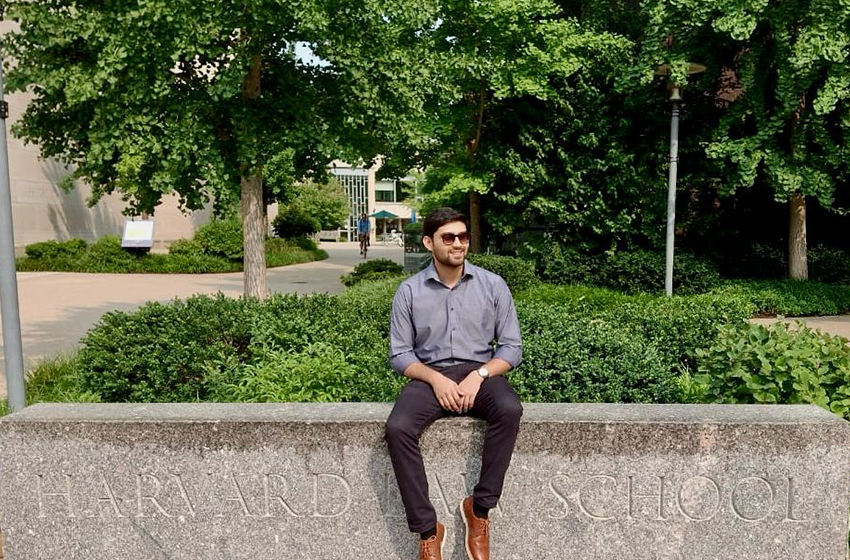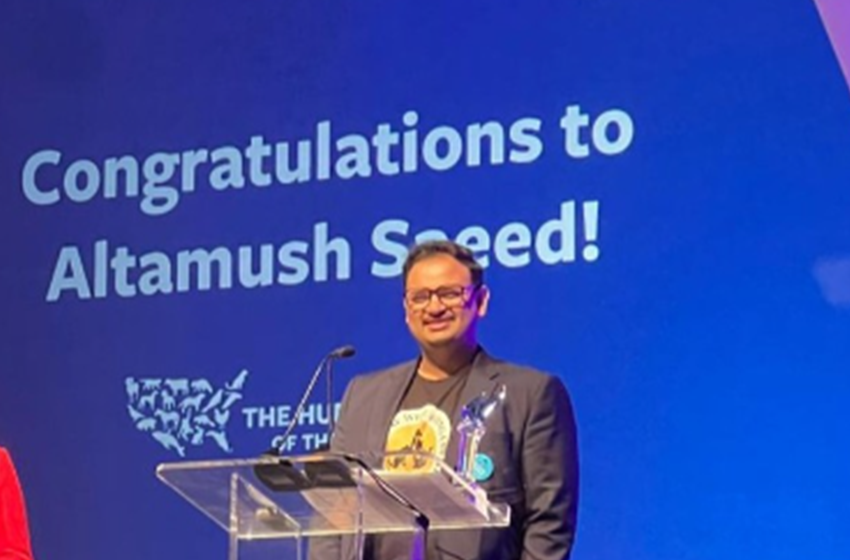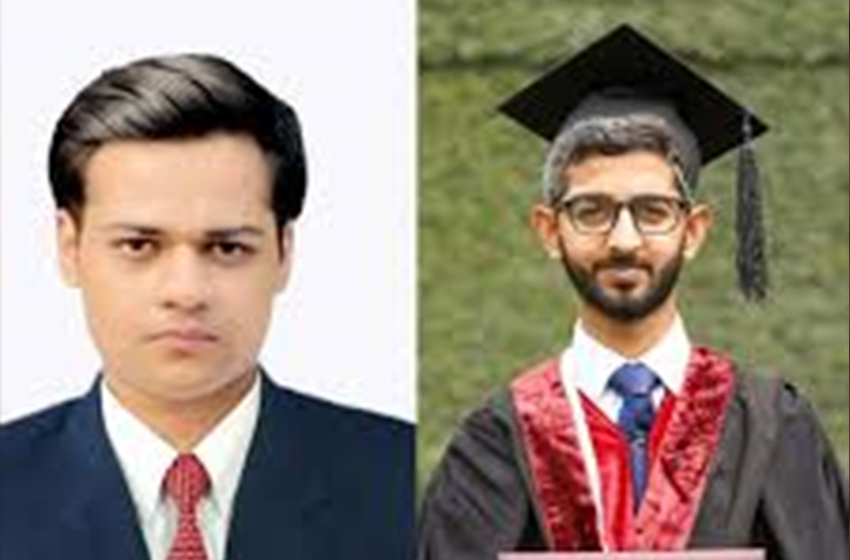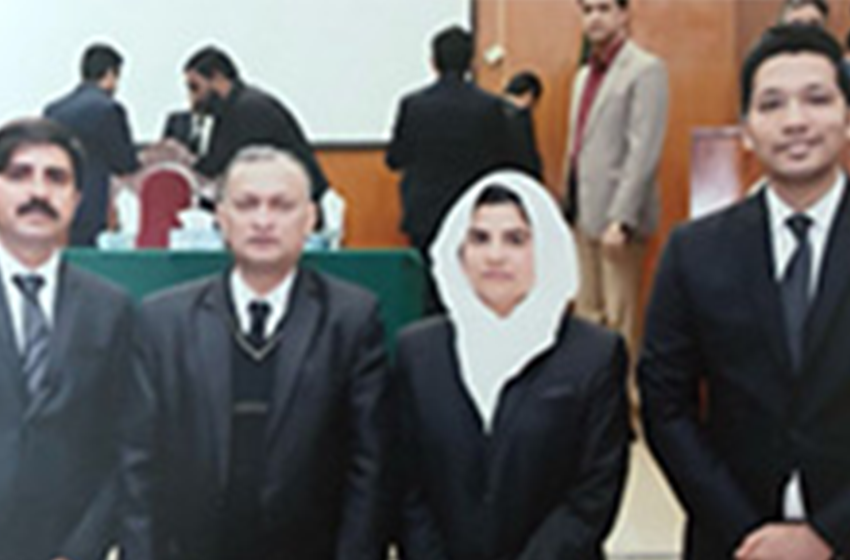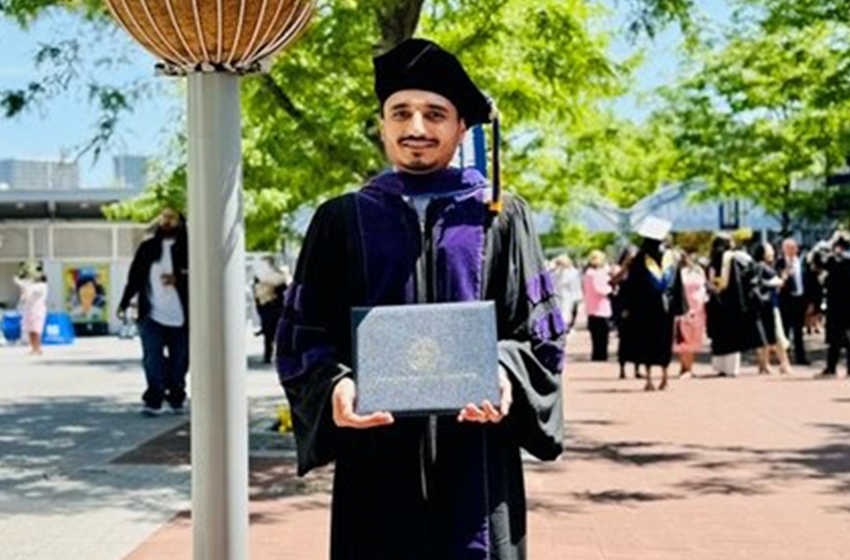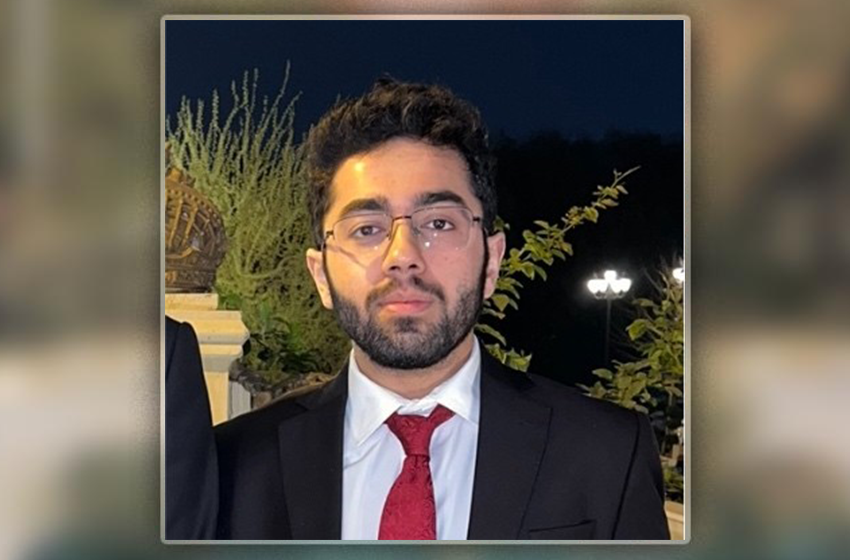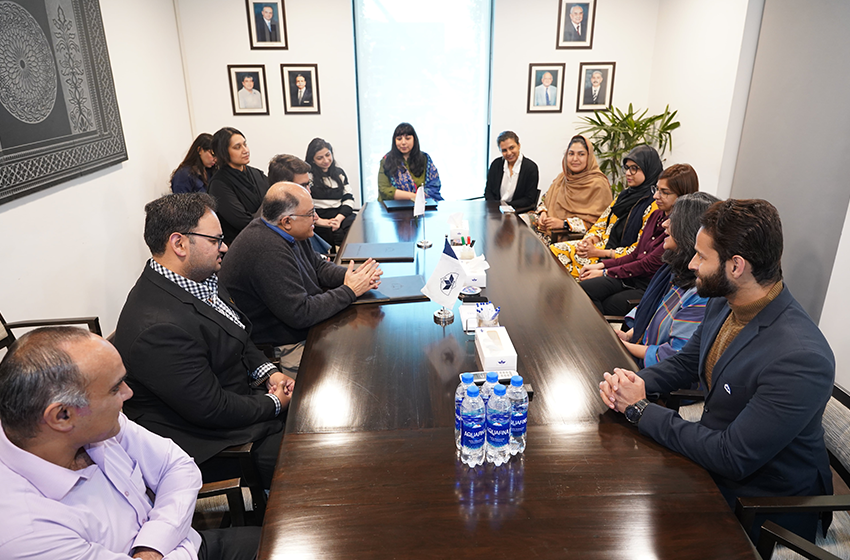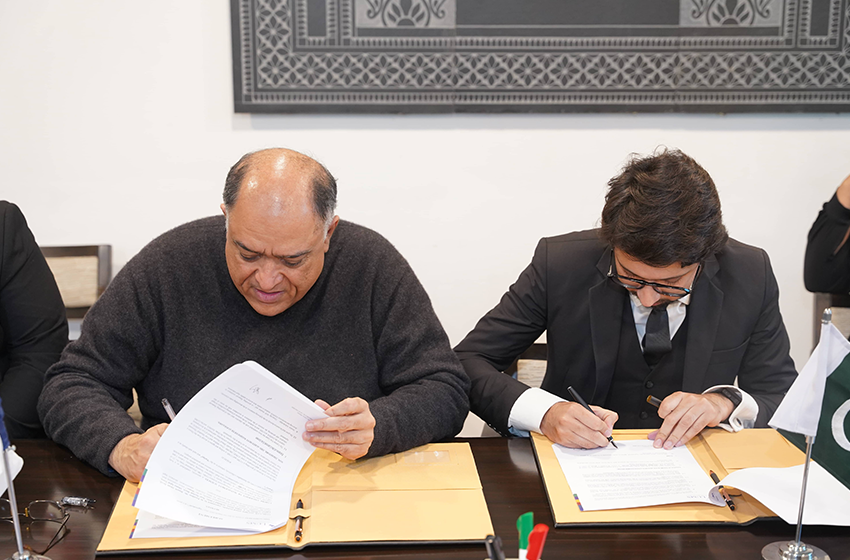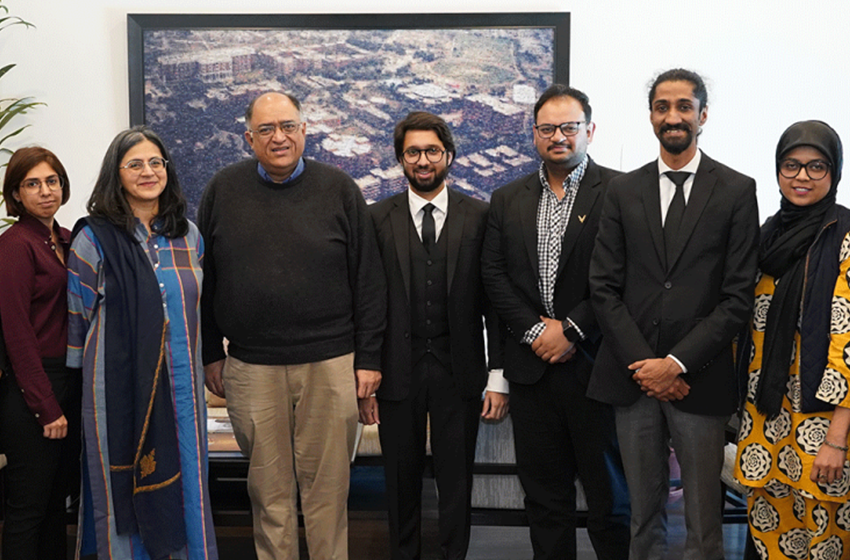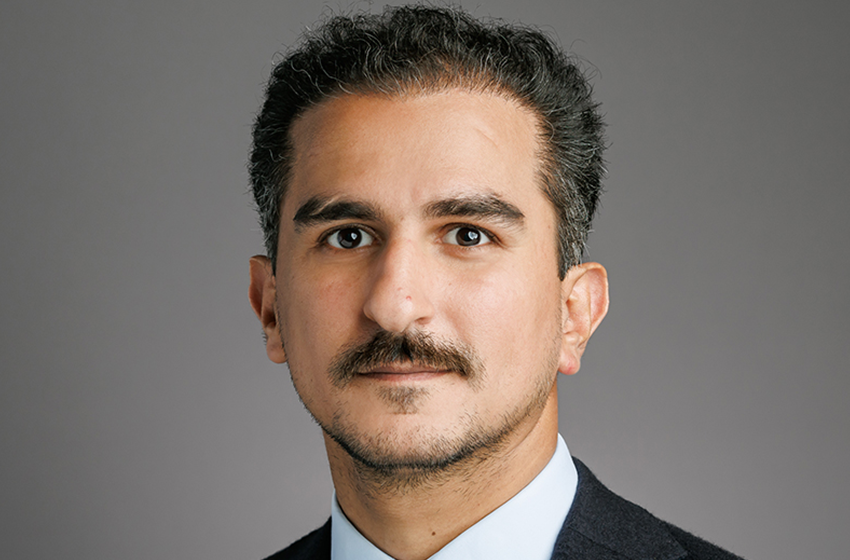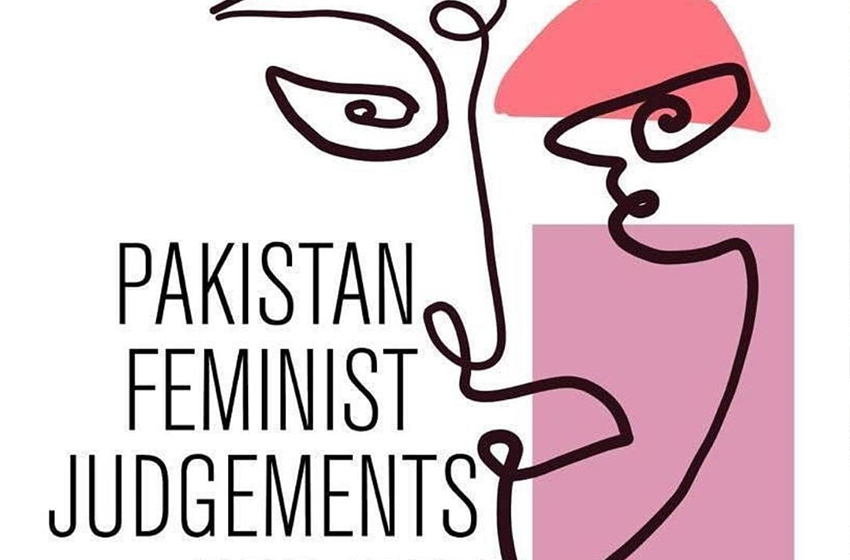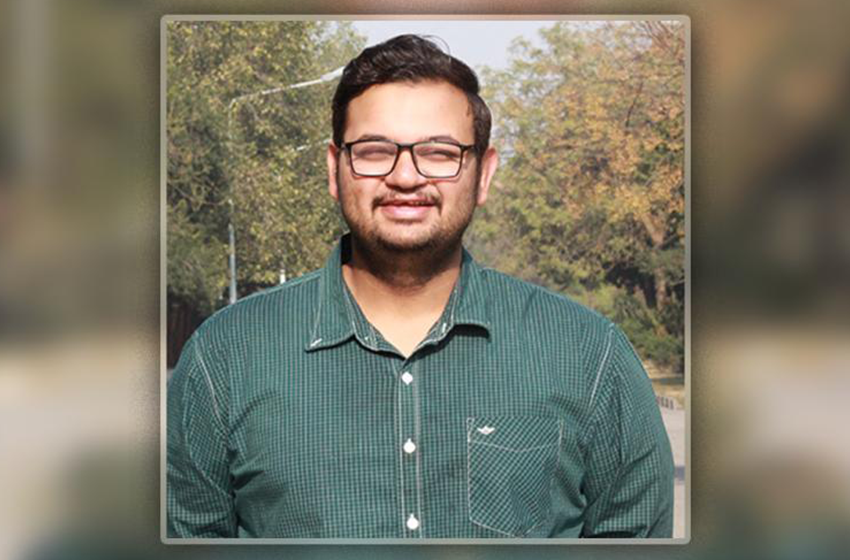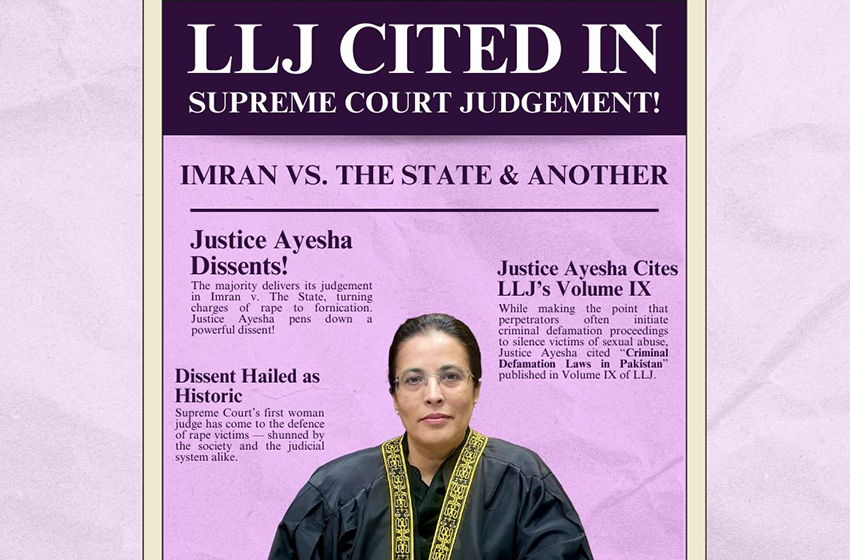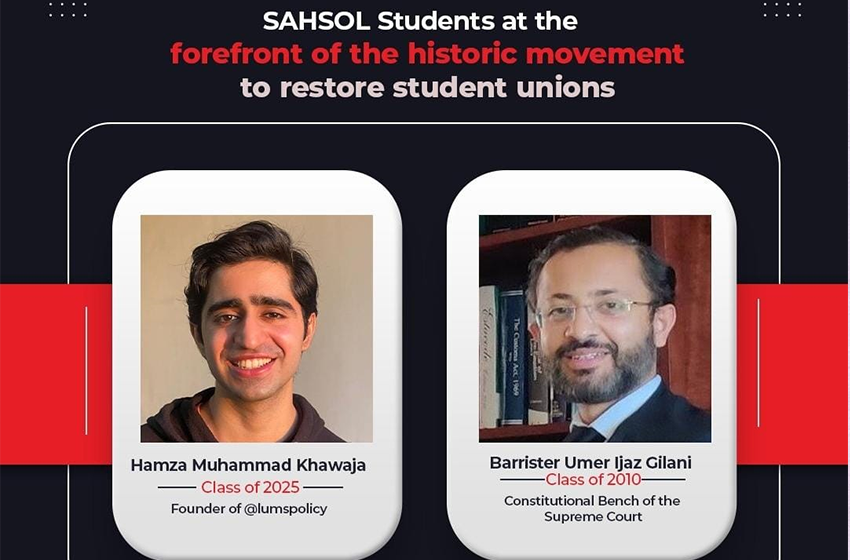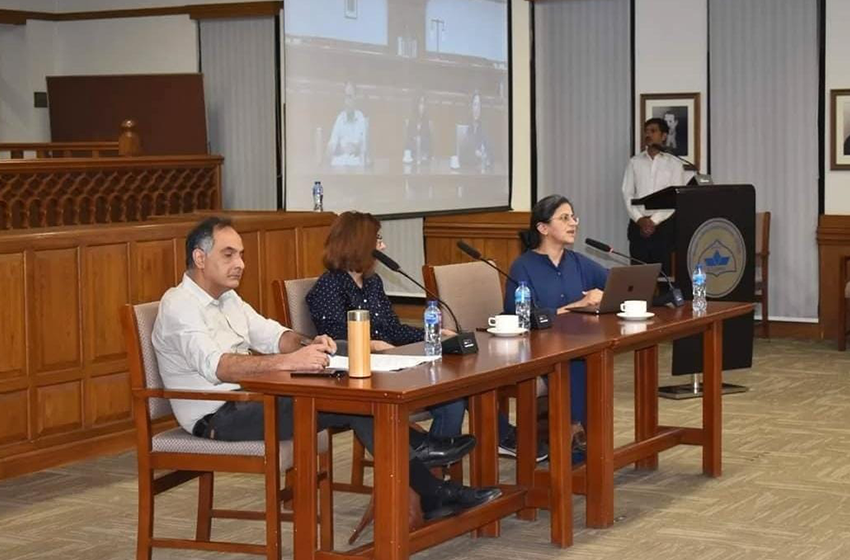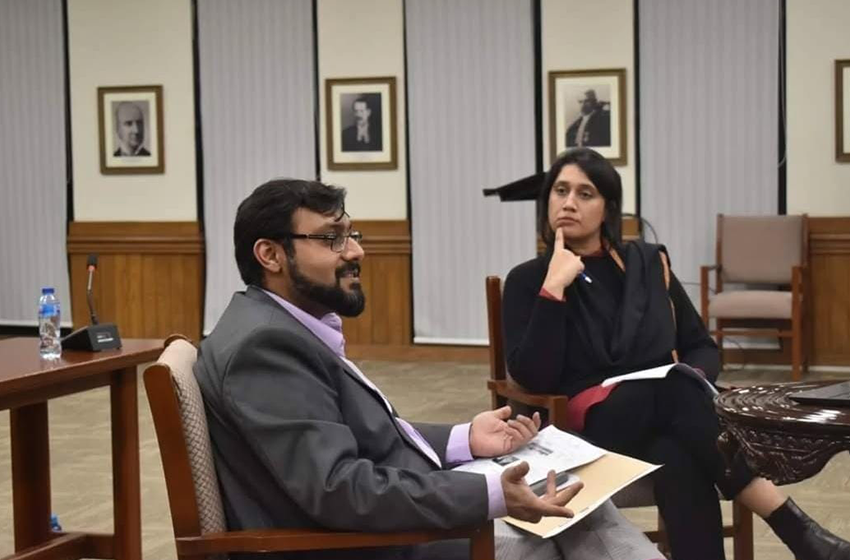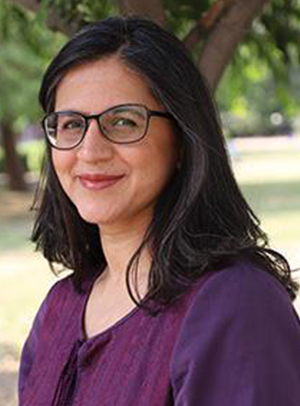
Message from the Dean
As the Shaikh Ahmad Hassan School of Law (SAHSOL) approaches its 20th anniversary, the events and accomplishments of the past year highlight the steady and ongoing success of this institution. The profound impact of our alumni, the promotion of legal scholarships and innovative learning by our faculty, and the many synergies developed with fields of legal practice are among the ways in which we chart our success. However, more salient and longstanding, we hope, are the ways in which the delivery of legal education is tied to an ethical purpose. Whether we do that by providing forums for critique and reflection or by interlinking community service with legal education, it is our endeavour to aim for a law that upholds humane values.
A set of events this last year highlighted the significant growth of expertise in international law within our community. We hosted a significant conference that reflected on the multiple current crises that beset the field. Simultaneously , the high-quality education that our students receive is reflected in the record of mooting successes of this year. From being the first ever Pakistani team to win the Jean Pictet International Humanitarian Law Moot to securing significant positions and commendations for two other global law moots, these students have made us immensely proud. Another significant achievement is that a recent graduate of the programme, Syed Qasim Abbas has been selected as the first ever Pakistani to be a Judicial Fellow at the International Court of Justice (ICJ). This, along with the citation of the Asghar Leghari case in the arguments being presented at the ICJ as the court prepares to deliver an advisory opinion on the obligations of states regarding climate change provide hope that these capable and competent young people will be representing our part of the world in the authorship of international legal norms well into the future.
Efforts over the last many years to build up a clinical legal education programme culminated in the launch of the LUMS Law Clinic. Understanding that international and constitutional rights mean nothing if people are unable to petition for these rights through their justice system, our students are now engaged in an experiential learning programme that reorients them towards service delivery for the most vulnerable in our communities. The clinic is an umbrella institution that we hope will continue to support a range of active interventions in the functioning and development of our local justice system. Further avenues for growth could include environmental modules and incorporate the expertise of some of our alumni who are pioneering specialisms and expertise in areas such as animal law.
In this last year, a range of plans have been tabled to alter the structure of legal education in the country. As an institution that seeks to branch out and offer graduate level programming in the coming years, we have been engaged in debates touching on these matters. At the same time, as an institution that has now had time to grow and assimilate our learning of these last two decades into constant curricular revision, we are also able to share broadly with other community stakeholders. We have expanded into executive education and continue to deliver our hallmark pedagogical training for law instructors. Internally, we are engaging our own faculty in training in alternative dispute resolution methods so as to be able to better impart these skills to future students.
Dr. Sadaf Aziz
Dean,
Shaikh Ahmad Hassan School of Law
Clinics at SAHSOL
Launch of SAHSOL’s Pro-Bono Legal Aid Clinic
The full operation of the LUMS Law Clinic was officially launched, serving as the organisational hub for various faculty and student initiatives aimed at promoting justice, legal literacy and offering pro-bono legal services. The launch event celebrated the diverse efforts of faculty members, students, and community partners in expanding access to justice within our community.
The clinic is designed to equip students with real-world legal experience while promoting access to justice and legal literacy. It supports a range of pro bono services including legal representation in family and bail matters, and the provision of legal literacy sessions in prisons delivered in partnership with the Punjab Prisons Department and Women Crisis Center, Lahore. Rooted in experiential learning, the clinic enables students to translate doctrinal knowledge into meaningful legal practice, particularly for marginalised and underserved communities.
A credit bearing course, the LUMS Law Clinic, was rolled out in the Spring 2025 semester. Taught by Maira Mumtaz, the course engages students in legal service delivery and experiential learning. Clients for Khula cases are referred by the Punjab Women Crisis Center and for bail cases, the referral agency is the Punjab Prisons Department. In both types of cases, students begin the assignment with client interviews. This is then followed by the execution of a power of attorney allowing the clinic instructor to represent these clients in Court. Students then commence their case preparation. This includes research, drafting of the plaint or bail application, and the preparation of notes for oral argumentation. Students in most cases were able to also assist the instructor in her arguments in court. In its first offering, the Clinic was able to obtain favourable orders for five clients in family-related matters and four clients were granted bail, with more cases set for argument after the semester.
The nature of clinical work extends beyond the academic term, and students are expected to sign non-disclosure agreements before documentation is shared with them. They are required to maintain up-to-date documentation, maintain a uniform naming convention for documents, and upload them to the portal in a timely fashion to ensure a smooth transition between clinic students across academic terms.
During this time, students put to practice years of knowledge acquisition, while practicing values of ethical legal practice. Rooted in experiential learning, the clinic enables students to translate doctrinal knowledge into meaningful legal practice, particularly for marginalised and underserved communities. The LUMS Law Clinic affirms SAHSOL’s commitment to legal innovation, social responsibility, and the professional and ethical development of the next generation of legal practitioners in Pakistan.
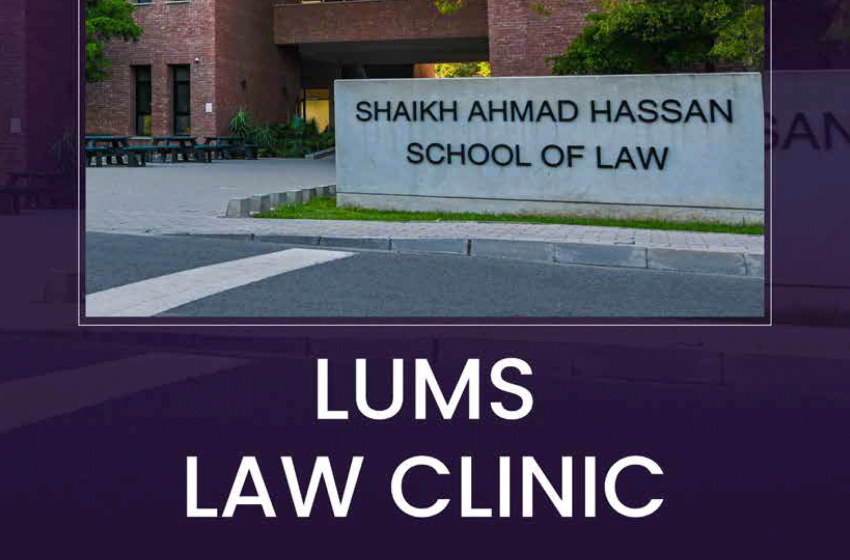
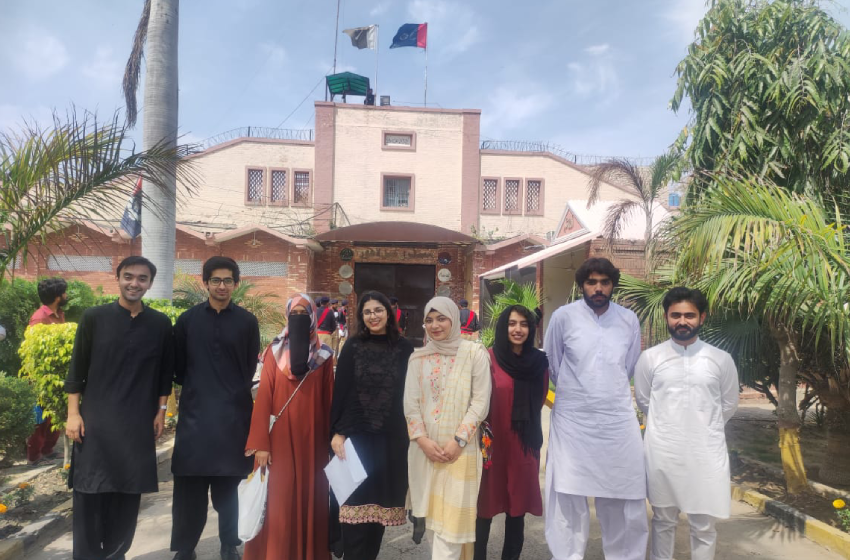
Prison Paralegal Clinic
After a successful term spent in District Jails in Lahore and Sheikhupura in 2024, the Prison Paralegal Clinic was assigned to District Jail, Kasur for this year. Led by Ms. Angbeen Atif Mirza and Dr. Qadeer Alam, the paralegal clinic combines the scholarship of teaching and learning with legal theory to produce lesson plans aimed at creating informed citizens. Students navigate complex legal theories, translating them into practical information and designing highly interactive lesson plans to deliver legal awareness to prison inmates.
Other Clinical Activities
SAHSOL hosted a webinar on Street Law and Access to Justice featuring Prof. David McQuoid Mason, Professor of Law, University of KwaZulu-Natal, Durban and Advocate of the High Court of South Africa. The session focused on the role of street law in promoting access to justice, effective teaching methodologies, and key components of impactful legal education, including legal content, policy considerations, interactive strategies, and practical advice. In addition, Haider Rasul Mirza, Advocate Supreme Court of Pakistan, delivered a guest lecture on cross-examination in criminal cases, covering rules of evidence, relevancy, admissibility, and the process of chief and re-examination.
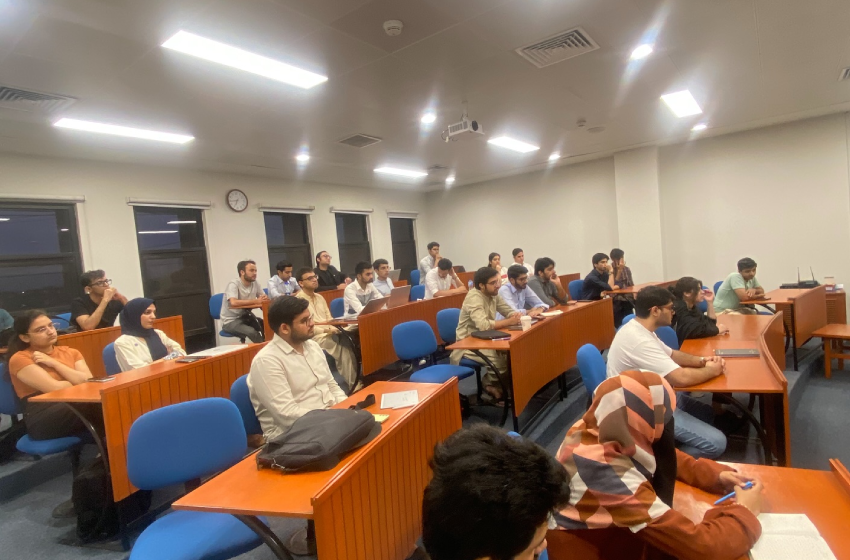
Enhancing Legal Academia
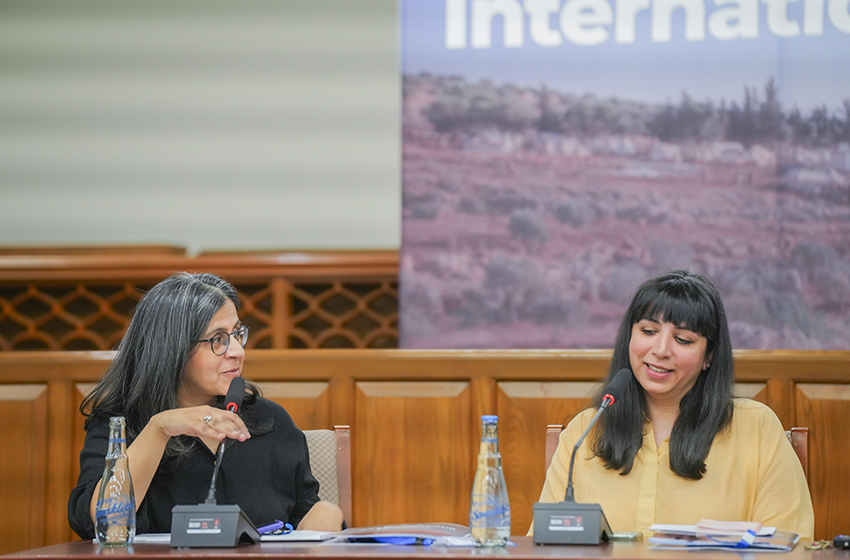
Futures of International Law
In a time when the foundations of international law are deeply contested, SAHSOL hosted its third annual conference, Futures of International Law, on April 21-22, 2025. Drawing scholars and practitioners from across the globe, including the UK, Norway, India, and Pakistan, the conference critically explored the evolving relevance of international law in addressing conflict, displacement, inequality, and the climate crisis.
The conference opened with a powerful plenary session that centred Gaza within a broader critique of the colonial and selective underpinnings of international law. Speakers reflected on the silence of legal institutions in the face of atrocity and the marginalisation of voices from the Global South, particularly Palestine. This set the tone for two days of engaged and reflective discussion on the promises and failures of international legal frameworks.
Over six panel sessions, participants addressed tensions within the field, including the disconnect between legal ideals and geopolitical realities, the failure of humanitarian law to protect civilians, the fragmented legal regimes governing climate displacement and cyber conflict, and the structural inequalities embedded in economic and investment law.
Together, these conversations called into question the legitimacy of existing legal orders, while also offering alternative visions rooted in local practices, anti-colonial critique, and global solidarity. The conference concluded with a reflective plenary led by Dr. Parvez Hassan and Ambassador Zamir Akram, who revisited Pakistan’s contributions to international legal development and called for a renewed multilateralism capable of responding to today’s most urgent challenges. Looking ahead, participants expressed both skepticism and cautious hope for reimagining international law as a field committed to justice, resistance, and transformation.
LUMS Law Journal – Young Scholar’s Workshop and Case Notes
In April, the LUMS Law Journal (LLJ) held its 2nd Young Scholars’ Workshop at SAHSOL, bringing together young legal researchers from across Pakistan to present draft papers and receive feedback. The workshop fostered a supportive space for young scholars to engage in critical dialogue and strengthen their academic writing, with senior faculty and editors from LLJ providing constructive feedback, contributing to the development of high-quality legal scholarship.
Since its launch in Fall 2024, the LUMS Law Journal’s student-led case-note initiative has rapidly become a vital platform for legal scholarship and practical skill-building. By dissecting recent judicial decisions and translating complex rulings into concise, critical analyses, participating students deepen their understanding of doctrinal developments while sharpening their abilities in legal research, writing, and argumentation. With twenty case notes now published on the Journal’s website, readers can explore a diverse array of topics—from constitutional challenges to commercial disputes—each selected for its doctrinal significance and contemporary relevance.
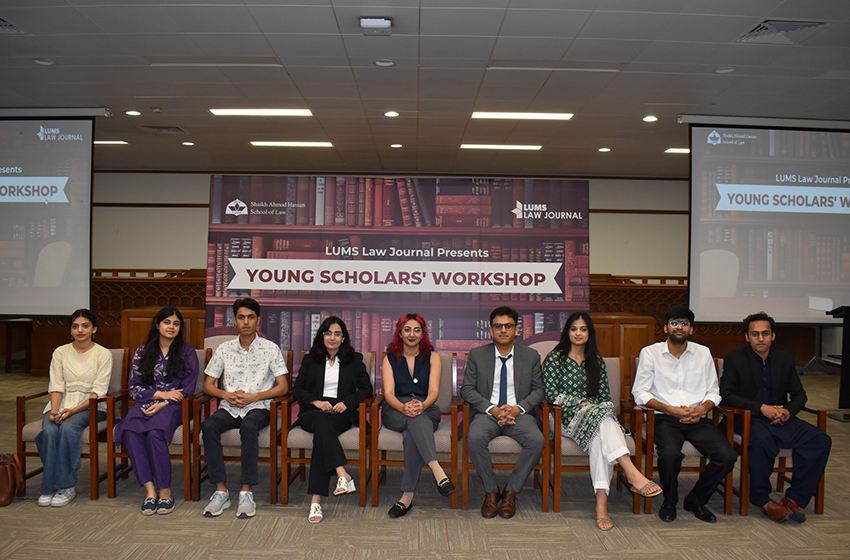
Faculty Research and Presentations
Federalist Solutions to Pakistan’s Political Crises
Dr. Sikander Shah’s second self-authored manuscript was published by Rowman & Littlefield in 2024. The book explores the potential for transforming Pakistan’s political and economic systems by fostering communal democratic principles. Dr. Shah proposes a decentralised centripetal model of federalism – one that promotes power-sharing – as a counter to the hegemonic forces at play in the Pakistani context, and as a means of enhancing intranational social cohesion. This model advocates for smaller, more diverse provinces that more accurately reflect local demographics as a means of increasing political representation.
“Shah powerfully historicises and critiques Pakistan’s existing federalism as a way of managing ethnic difference.” – Majed Akhtar, King’s College London.
“In this wonderfully well-written and meticulously researched book Sikander Shah investigates the intricate dynamics of Pakistan’s federal structure and ethno-linguistic political economy.” – Moeen Cheema, The Australian National University.
- Sikander Ahmad Shah, Manual of Drug Laws (2025), Mansoor Law Book House.
- Raza Saeed, So, what’s wrong with colonialism? (2025) – Understanding colonialism’s political, territorial, and epistemic injustice. International Journal of Law in Context’ 21(1).
- Muhammad Azeem ‘ Mapping the Politics of Postcolonial Critique through the Writings of Aziz-ul-Haq ’ (2024) in Marxist Thought in South Asia Political Power and Social Theory, Volume 40, 47–74 and ‘ Resistance and Change in Form and Content of International Law: A Third World Perspective on Commodity Form Theory of International Law’ (2024) in Uluslararasi İlişkiler, International Relations, Volume 21, Number 82, p. 153-170.
- Sadaf Aziz and Marva Khan Cheema, ‘From Colonial Legacy to Modern Praetorianism – Pakistan’s Constitutional Structure’, in Asian Comparative Constitutional Law – Constitutional Structure, Volume 3, Hart Publishing (forthcoming 2025)
- Aisha Ahmad and Sheharyar Sikander reviewed ‘Master Plans and Encroachments’ by Faiza Moatasim and ‘Competition Law in South Asia: Policy Diffusion and Transfer’ by Amber Darr, respectively, for Bloomsbury Pakistan.
Academic Engagements and Representation
- Raza Saeed presented ‘Colonial Transplantation of the Legal Form in South Asia and its (Post) Colonial Remnants’ at the Post-Imperial Legal Survivals and Global Legal Pluralism Workshop in the International Institute for the Sociology of Law, Spain. Dr. Saeed also served as Co-Convenor for the ‘Empire, Colonialism and Law’ stream at the Socio-Legal Studies Association Annual Conference, University of Liverpool.
- Uzair J. Kayani participated in panels on ADR and public-private partnerships at the UNCITRAL Colloquium on the Law of International Trade for a Greener Future, Vienna.
- Sikander Ahmad Shah delivered a series of lectures based on chapters from his book, Federalist Solution to Pakistan’s Political Crisis (Lexington Books, 2024), as part of the Clarke Initiative for Law and Development in the Middle East and North Africa at Cornell University School of Law, New York . Additionally, he presented on Human Rights, Business and Faith: Exploring the Critical Intersections Shaping Pakistan’s Future at the conference ‘Pathways to Peace and Prosperity in Turbulent Times’, organised by the Institute of Regional Studies and held in Islamabad.
- Sheharyar Sikander presented Challenges and Opportunities for Private Equity Players in Frontier Markets: A Case Study of Pakistan at ‘The Law and Finance of Private Equity and Venture Capital’, held at the University of Pennsylvania Carey Law School, Pennsylvania. He also spoke on Corporate Waqf as a Responsible Investment Strategy at the Annual Conference of the Society for the Advancement of Socio-Economics (SASE) held at the Kemmy Business School, University of Limerick, Ireland.
- Dr. Sadaf Aziz presented on Martial Law at the Oxford Handbook Authoritarian Law Workshop at Columbia Law School, New York.
Faculty Initiative Fund Winners 2024–25
The following faculty members were awarded support to advance their research projects :
- Summaiya Zaidi, A History of Women Lawyering: Case Study for Sindh.
- Sikander Ahmad Shah, Forgotten Voices: Investigating the Challenges Faced by Women and Children Refugees and Stateless Communities in Pakistan.
- Syed Muhammad Azeem, Effects of Artificial Intelligence (AI) and Digital Work Platforms on Labor in Pakistan: Amending Existing Labor Laws and Drafting a New Labor Regulation.
- Syeda Zehra Zaidi, Towards Effective Marine Pollution Control in Pakistan: Legal and Regulatory Reforms for Addressing Oil Spills.
Alumni Accomplishments and Events
LUMS Law Alumni Association
The LUMS Law Alumni Association has made a significant contribution through its annual commitment to support student scholarships, legal research, and faculty development at SAHSOL. This initiative was formalised at a ceremony attended by the Vice Chancellor, SAHSOL Dean, and faculty members.
Additionally, a reunion was hosted by Syed Umair Javed (2008) in Islamabad, where SAHSOL alumni came together to reminisce, reconnect, and celebrate the enduring spirit of their shared journey.
STUDENT ACCOMPLISHMENTS: MOOTING AT SAHSOL
SAHSOL’s efforts to formalise and support an international mooting programme with dedicated faculty oversight and institutional support have resulted in unprecedented success in this academic year. Under the guidance of Dr. Aisha Ahmad, teams were constituted for three major competitions through a competitive process. They were provided coaching and support as they progressed from national to regional and then international rounds of the Jean Pictet International Humanitarian Law Competition, the Willem C. Vis International Commercial Arbitration Moot, and the Phillip C. Jessup International Law Moot Competition.
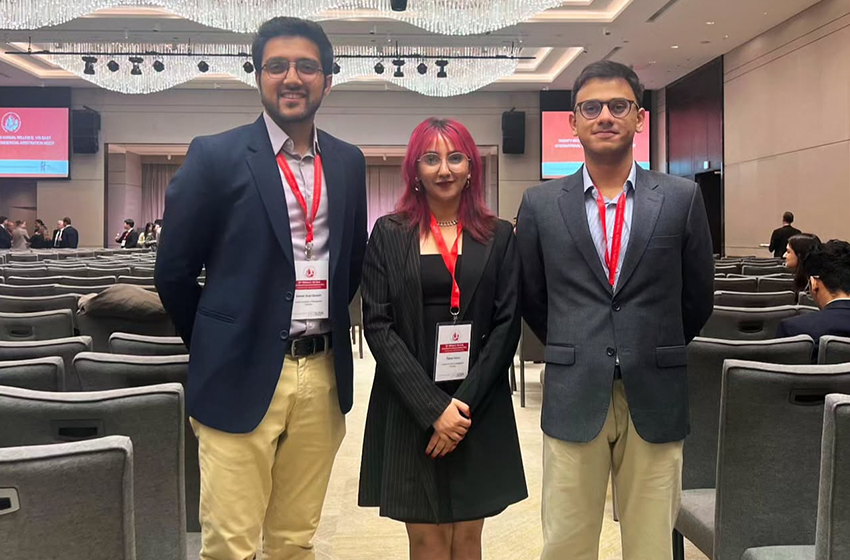
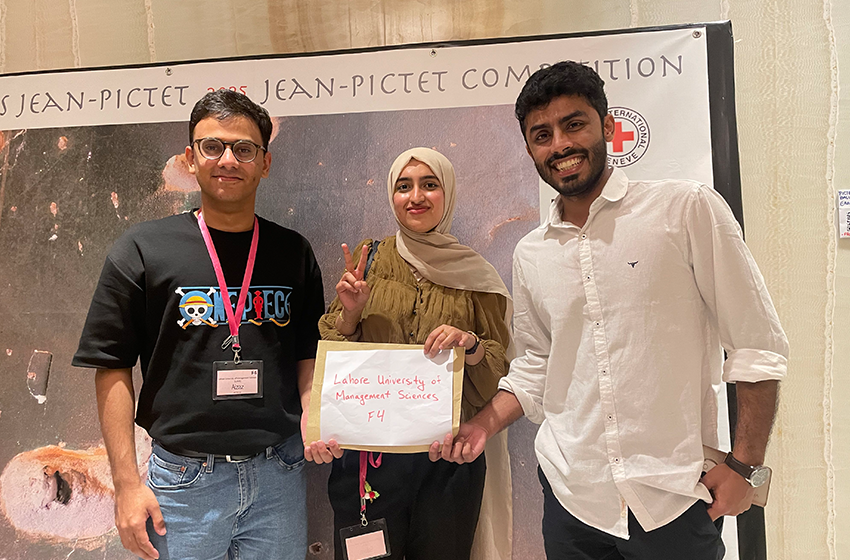
For the Jean Pictet International Humanitarian Law Competition, SAHSOL made history with its team becoming the first-ever victors from Pakistan. Aizaz Arif (2025), Sakina Zulfiqar (2025), and Asfand Katchela (2026) competed against 140 delegates from 49 countries, including Masters and PhD students specialising in International Humanitarian Law (IHL). The team undertook a 60-hour certified online module on IHL and engaged in weekly coaching sessions with an assigned mentor from December to mid-February. From 49 initially shortlisted teams, 39 advanced to compete onsite. The competition entailed approximately 10 preliminary rounds over five days, culminating in the team advancing to and winning the final after successfully clearing the semi-final collective exercise in Bali, Indonesia. Sakina was shortlisted for the Gilbert-Apolis Best Speaker Award.
In the Willem C. Vis International Commercial Arbitration Moot, the SAHSOL team reached the quarter-finals in Hong Kong in April 2025, ranking amongst the top eight out of 154 teams globally. The team’s achievement was recognised with the Eric R. Bergsten Award for schools excelling in the Oral Arguments. Team members Sameer Asad Qureshi and Fatima Farooq Chishti received Honourable Mentions for the Neil Kaplan Award for Best Individual Oral Advocate. Earlier, the team won the national round at NUST University, Islamabad, where they also received the Best Memorandum (Claimant) Award. Fatima Farooq Chishti was recognised as the Best Speaker in the national round. The team also participated in training at the Dubai International Arbitration Centre in collaboration with the American University in the Emirates. They also attended the 15th Annual Middle East Willem C. Vis Pre-Moot in Abu Dhabi, UAE.
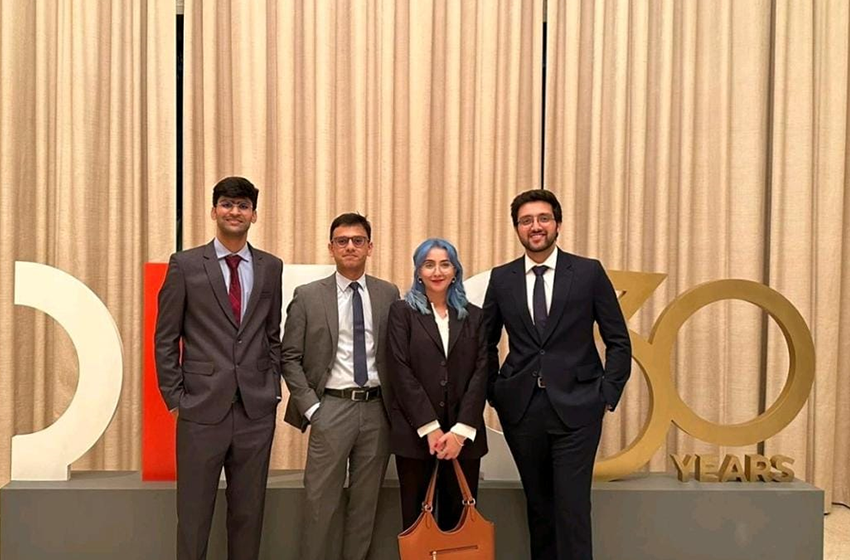
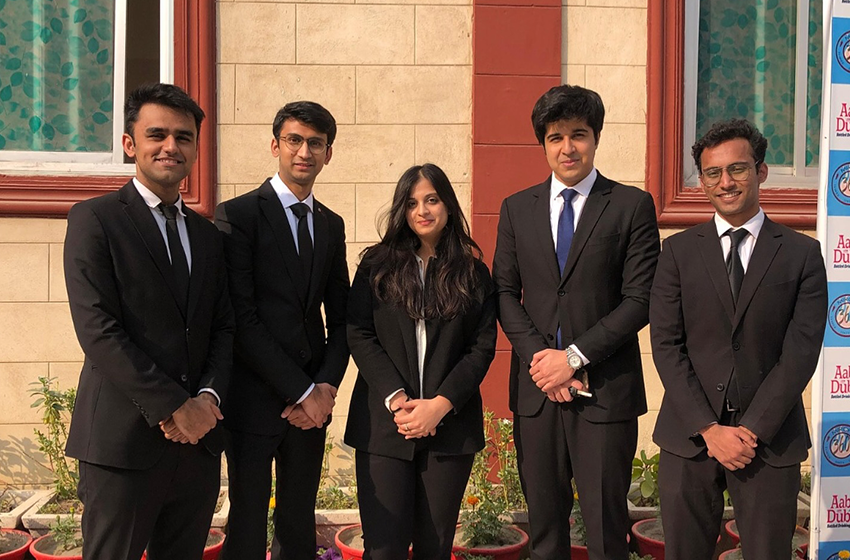
The Philip C. Jessup International Moot Court Competition is the world’s largest moot court event, bringing together participants from over 700 law schools across 100 countries to engage in complex simulations of international legal disputes. The LUMS team earned its place on this global stage through an outstanding performance at the Pakistan National Rounds, hosted by Indus College of Law in Hyderabad. Among 32 competing teams, the LUMS delegation secured the top rank in the preliminary rounds and demonstrated remarkable legal advocacy skills, advancing through the Round of 16 and Quarterfinals to ultimately qualify as Semifinalists. The team comprised Ali Hassan (2026), Malik Ahmed Hasan (2026), and Ali Abbas Gilani (2026), and Amna Naqvi.
SAHSOL students also achieved remarkable success across several national moot court competitions. They secured first place at the 2nd National Lords Moot Court Competition 2025, marking the second consecutive year of LUMS' victory at this event. Malik Ahmed Hassan was recognised as Best Speaker. The students also triumphed in the national rounds of the Skadden FDI Arbitration Moot Competition 2024, hosted by NUST. Additionally, the SAHSOL team secured first place at the 3rd TILS Moot Court Competition 2025, with Muhammad Umar Motasim and Kainat Khan Niazi receiving Best Speaker honours.
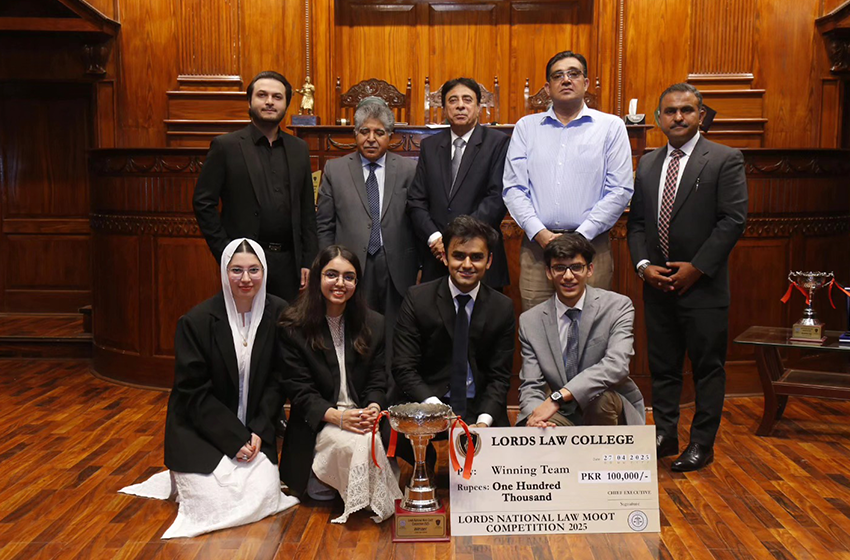
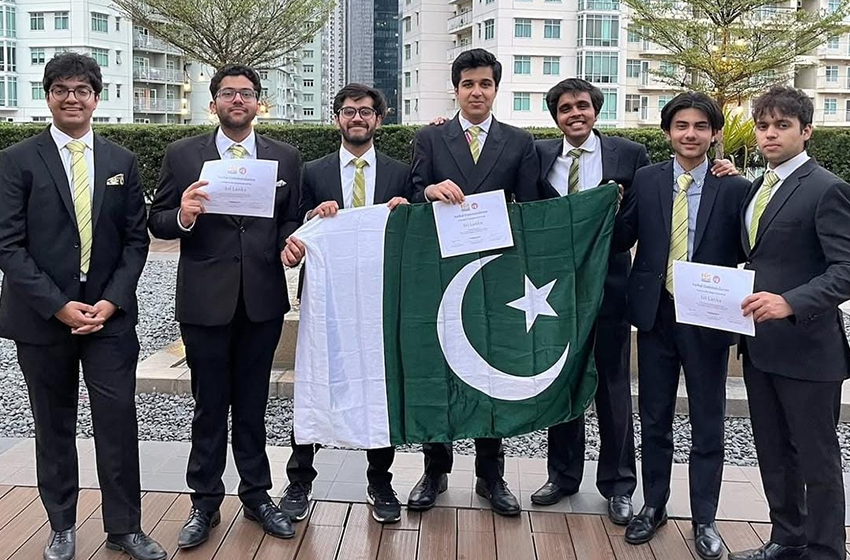
As a member of the LUMUN team that secured third position in the Small Delegations category at the 33rd session of Harvard World Model United Nations 2025 in Manila, Philippines, Raja Omer Farooq secured second place in the Verbal Commendation of the Legal Committee.
Fostering Rights and Reform in the Legal Field
MAJOR EVENTS
Trainings and Workshops
Alternate Dispute Resolution
As a concrete first step towards establishing an Alternative Dispute Resolution Centre, SAHSOL collaborated with the Legal Aid Society (LAS) and the Mediation and International Commercial Arbitration Centre (MICADR) to host a 40-hour mediation skills training programme. Timed with the Supreme Court’s institutionalisation efforts around ADR and Pakistan’s accession to the Singapore Convention on Mediation, the initiative seeks to develop a cadre of accredited mediators equipped to support time-efficient, cost-effective dispute resolution.

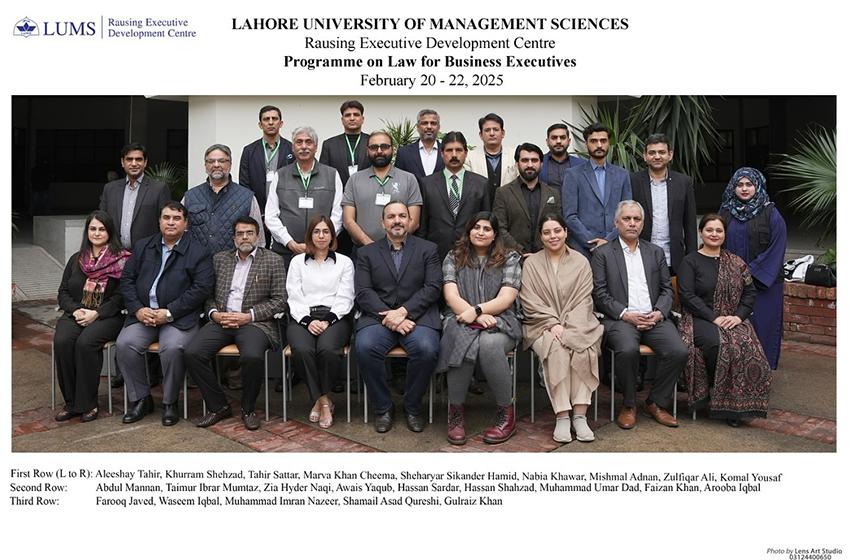
Law for Business Executives Programme
In February, SAHSOL and the Rausing Executive Development Centre (REDC) jointly offered the Law for Business Executives programme at LUMS. Designed to equip business professionals with essential legal knowledge for strategic and compliant decision-making, the course explored key areas such as contract and company law, consumer protection, competition law, labour litigation, environmental regulation, intellectual property rights, taxation, and alternative dispute resolution.
Historical and Archival Research for Legal Scholars
Dr. Kristin Plys, Associate Professor, Sociology and History, University of Toronto was in residence at SAHSOL for one month and led a programme titled Historical and Archival Research for Legal Scholars for participants from across the university. Dr. Plys used her valuable expertise in third-world socialism and global and transnational history to equip legal scholars and history enthusiasts with valuable tools for archival research in Pakistan.
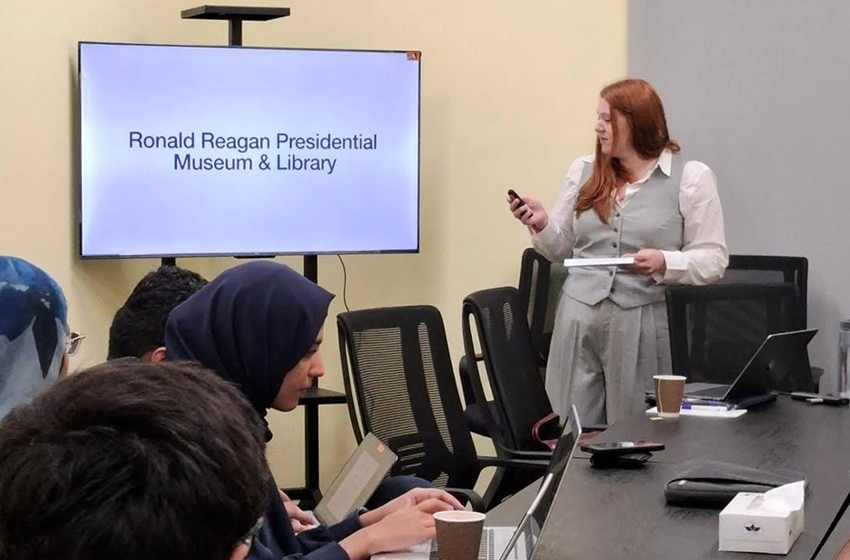
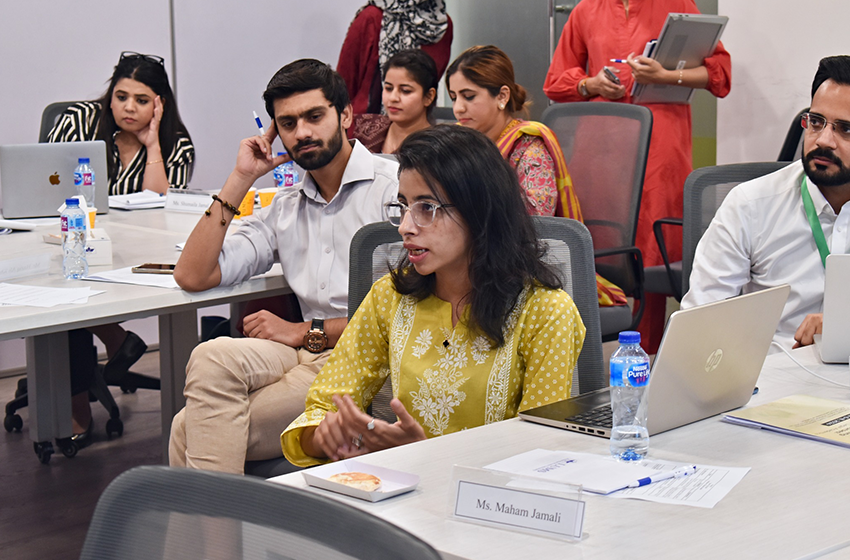
Designing and Teaching Effective Law Courses: Pedagogical Training for Legal Academics
In June 2024, SAHSOL, in collaboration with the LUMS Learning Institute (LLI) and the Directorate of Legal Education, Pakistan Bar Council, successfully concluded the third round of national-level trainings focused on pedagogy and course design. This initiative engaged 20 law instructors representing various institutions across Pakistan. The programme was co-sponsored by the Law and Justice Commission of Pakistan and reflects a continued institutional commitment to enhancing teaching excellence and curricular innovation in legal education.
Consultation Workshop for the Trade Union Federation and Labor Lawyers on the New Uniform Labour Codes
Dr. Syed Muhammad Azeem, Associate Professor and Mr. Muhammad Umar, Visiting Assistant Professor held consultations with key actors to apprise them of proposed changes to the regulation of labour through the uniform labour codes introduced by the Provincial Governments in Punjab and Sindh.
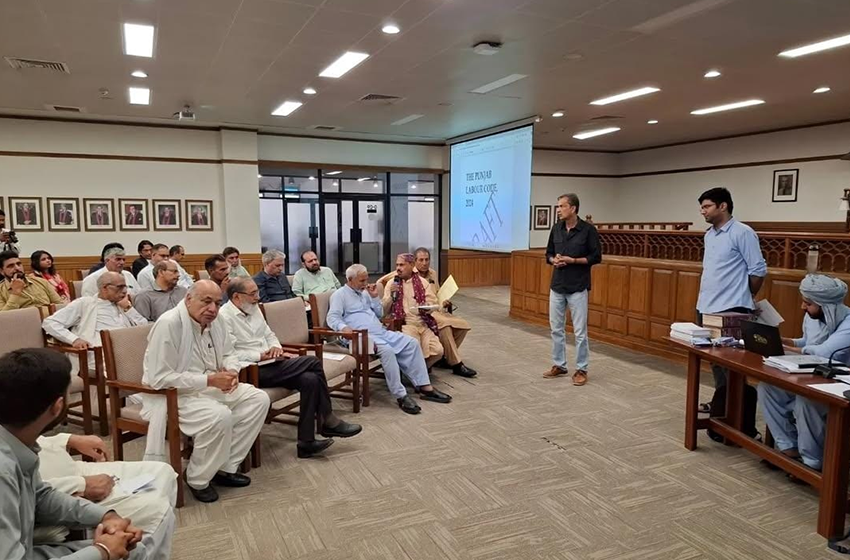
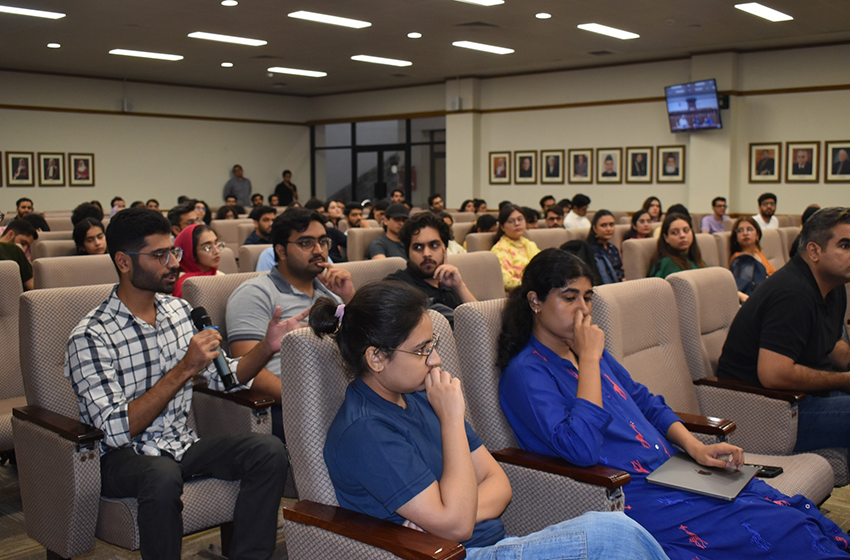
Networking Day with Law Firms
In April, SAHSOL, in collaboration with the LUMS Career Services Office, hosted a vibrant Law Networking Session that brought together legal professionals, alumni, and students for an evening of meaningful engagement and opportunity. With 25 leading law firms, corporate legal departments, and public sector organisations in attendance, the event offered SAHSOL students a dynamic platform to explore career pathways, seek mentorship, and build valuable connections within the legal industry.
Talks, Seminars and Teach-Ins
Panel Discussion on Addressing Prisoner’s Rights in Pakistan through Justice Education
Dr. Qadeer Alam, AIG, Punjab Prisons; Ms. Sana Sharif, Legal Aid Society; and Mr. Sohail Yaafat, Justice Project Pakistan
Guess Who’s Paying for Dinner Tonight? The Right to Food and Competition in Food Markets
Dr. Amber Darr, Lecturer, Competition Law, University of Manchester
Does Islamic Feminism Help Muslim Women achieve Rights?
Dr. Rehana Parveen, Associate Professor, University of Birmingham
Voice of Resilience: A Dialogue with a Gaza Field Doctor
Dr. Hina Cheema, US based OB/GYN
Dukhtar Screening and Discussion
Ms. Afia Nathaniel, Film Director and legal expert Mr. Asad Jamal (HRCP) discussed the legal and social realities of child and forced marriages in Pakistan.
Insanity Defense: God Told Me to Kill
Dr. Ansar Haroun, Forensic Psychiatrist at San Diego Superior Court, California, and Clinical Professor
NAB Laws and White-Collar Crimes in Pakistan
Mr. Zahir Shah, Member, Prime Minister Inspection Commission, and former Deputy Chairman of NAB
Silencing the Messenger: The Challenge Facing Journalists
Mr. John Baker Atyani, (Editor-in-Chief, Independent Urdu & Bureau Chief, Arab News)


